Here are a few books that I have found personally helpful in men’s work. Some find that reading a book alongside therapy can help spark deeper insight and expand the mind.
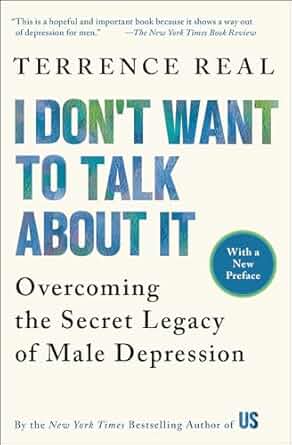
I Don’t Want to Talk About It – Terrence Real
For men considering therapy.
Written by a therapist with decades of experience working with men, this book reveals the hidden causes and symptoms of “covert depression” in men. The ways it shows up—workaholism, irritability, substance use, emotional shutdown—often don’t match current cultural ideas of “depression.”
Many boys grow up with early exposure to violence & bullying, are cut off from healthy emotional regulation due to the all-to-common “distant-father and over-bearing mother combo,” or a myriad of other causes, and it sets them up for a lifetime of keeping others at a distance. Read the book reviews and you’ll understand why this book is currently my #1 recommendation for men (and those who love them) who are living lives of quiet desperation.
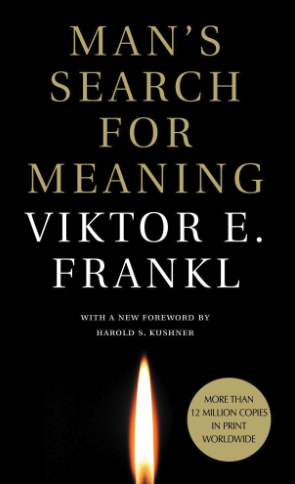
Man’s Search for Meaning – Viktor E. Frankl
For men seeking purpose.
Written by a psychiatrist and Holocaust survivor, this book is part memoir, part psychological framework. Frankl’s core idea—that we can endure almost any “how” if we have a “why”—has inspired millions to reevaluate what truly matters. For men feeling lost, nihilistic, or disconnected from meaning, Man’s Search for Meaning is a humbling and powerful reminder of our freedom to choose our response to suffering. It’s one of the most recommended books for men beginning therapy or undergoing major life transitions. Especially resonant for those exploring existential therapy or meaning-centered approaches.
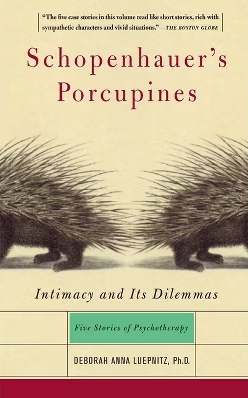
Schopenhauer’s Porcupines – Deborah Luepnitz
For relationship difficulties.
This book explores intimacy and relationship conflict through the lens of psychotherapy and philosophy. It may be a bit too inside-baseball for non-therapists. The porcupine metaphor is a great way of thinking about conflict relationships: we’re cold porcupines drawn together for warmth, but we prick each other a lot. Conflict is inevitable and essential for growth. If you’re working on improving your romantic relationship, or you often feel “too much” or “not enough” in relationships, this is a smart, compassionate guide to developing healthier connection.
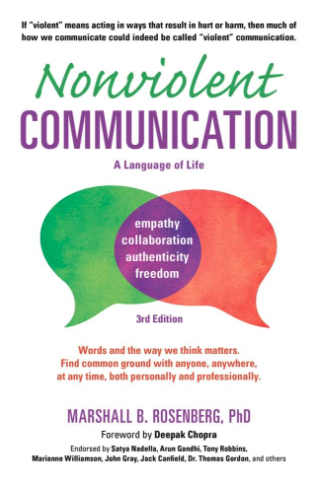
Nonviolent Communication – Marshall B. Rosenberg
New tools for your relationship toolkit.
Whether you’re in a romantic relationship, frustrated with coworkers, or trying to parent more intentionally, the ability to navigate difficult conversations is essential. This book gives practical tools for becoming a better communicator, which will help you build stronger partnerships in work, love, and life. Learn how to identify your needs (and hear others’ more clearly), navigate conflict, and strengthen your emotional intelligence. A powerful read for people in therapy looking to become better partners, friends, or leaders. If you’re quick to anger, have been accused of not hearing others, or feel like you struggle with advocating for your own needs, this book has something for you.
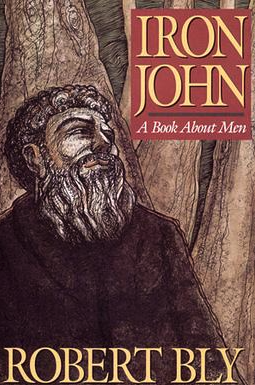
Iron John: A Book About Men – Robert Bly
Why this book may be useful for men:
Before “toxic masculinity” became a buzzword, there was a movement of male poets and therapists earnestly asking deeper questions about what men need to grow. Iron John is based on a Brothers Grimm fairytale and explores rites of passage, mentorship, anger, grief, and the inner “wild man” that many modern men have lost touch with. While this book remains somewhat controversial in its prescriptions, this book might help you reconnect with parts of yourself that have been shut down or underdeveloped. Especially relevant for men beginning therapy and want to explore masculinity on their own terms.
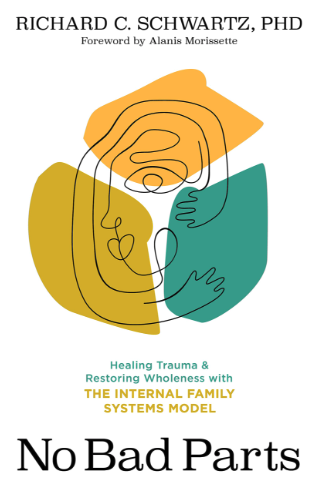
No Bad Parts – Dr. Richard C. Schwartz
For people who hate parts of themselves.
If you’ve ever said something like, “a part of me wants this, but another part of me doesn’t,” you’re already familiar with the basic premise of “parts work” and Internal Family Systems. This book breaks down why we sometimes feel stuck, ashamed, or self-sabotage. A solid read for men working through childhood wounds, inner conflict, shame, perfectionism, and more. Written in an accessible, therapy-informed style that many people will find relatable.